Self Study 1: New S1P-Targeted Disease Modifying Therapies
March 30, 2021
The accreditation for this activity has expired.
Primary Audience:
This activity is intended for neurologists and advanced practice professionals involved in the care of patients with multiple sclerosis.
Adnan Subei, DO (Moderator)
Medical Director
Multiple Sclerosis Program
Memorial Healthcare System Neuroscience Institute
Hollywood, Florida
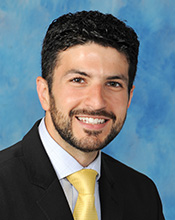 Dr. Subei is a board certified neurologist and medical director for the MS program at Memorial Healthcare System Neuroscience Institute. Has been awarded multiple fellowship grants from the American Academy of Neurology and the National Multiple Sclerosis Society and specialized in both neuro-visual and neuro-immunological disorders. He continues an active interest in research while at Memorial Healthcare where he has been since completing his fellowship at the Cleveland Clinic Mellen Center for Multiple Sclerosis Treatment and Research.
Dr. Subei is a board certified neurologist and medical director for the MS program at Memorial Healthcare System Neuroscience Institute. Has been awarded multiple fellowship grants from the American Academy of Neurology and the National Multiple Sclerosis Society and specialized in both neuro-visual and neuro-immunological disorders. He continues an active interest in research while at Memorial Healthcare where he has been since completing his fellowship at the Cleveland Clinic Mellen Center for Multiple Sclerosis Treatment and Research.Robert Naismith, MD (Chair)
Professor, Neurology
Clinic Director, John L. Trotter Multiple Sclerosis Center
Director, Multiple Sclerosis Clinical Trials Program
Washington University School of Medicine
St. Louis, Missouri
 Dr. Robert T. Naismith, MD, is Professor of Neurology at Washington University, where he is Clinic Director of the John L. Trotter MS Center, the Director of Clinical Trials for Multiple Sclerosis and Neuroimmunology, and Neurology Clerkship Director. Areas of research interest include use of imaging and outcome measures in clinical practice and research, clinical trial design, gait analysis, the visual system, and cognition in MS. Dr. Naismith's research is funded by the National Institutes of Health and National MS Society, and he is the author of many publications on MS. He serves on local and national committees for MS clinical care and research. His areas of clinical interest include treatment algorithms and best practices, along with multidisciplinary MS care.
Dr. Robert T. Naismith, MD, is Professor of Neurology at Washington University, where he is Clinic Director of the John L. Trotter MS Center, the Director of Clinical Trials for Multiple Sclerosis and Neuroimmunology, and Neurology Clerkship Director. Areas of research interest include use of imaging and outcome measures in clinical practice and research, clinical trial design, gait analysis, the visual system, and cognition in MS. Dr. Naismith's research is funded by the National Institutes of Health and National MS Society, and he is the author of many publications on MS. He serves on local and national committees for MS clinical care and research. His areas of clinical interest include treatment algorithms and best practices, along with multidisciplinary MS care.Erin Longbrake, MD, PhD (Surveyed Expert, Group Leader)
Assistant Professor of Neurology
Program Director, Neuroimmunology Fellowship
Director, Clinical Research in Neuroimmunology
Yale University
New Haven, Connecticut
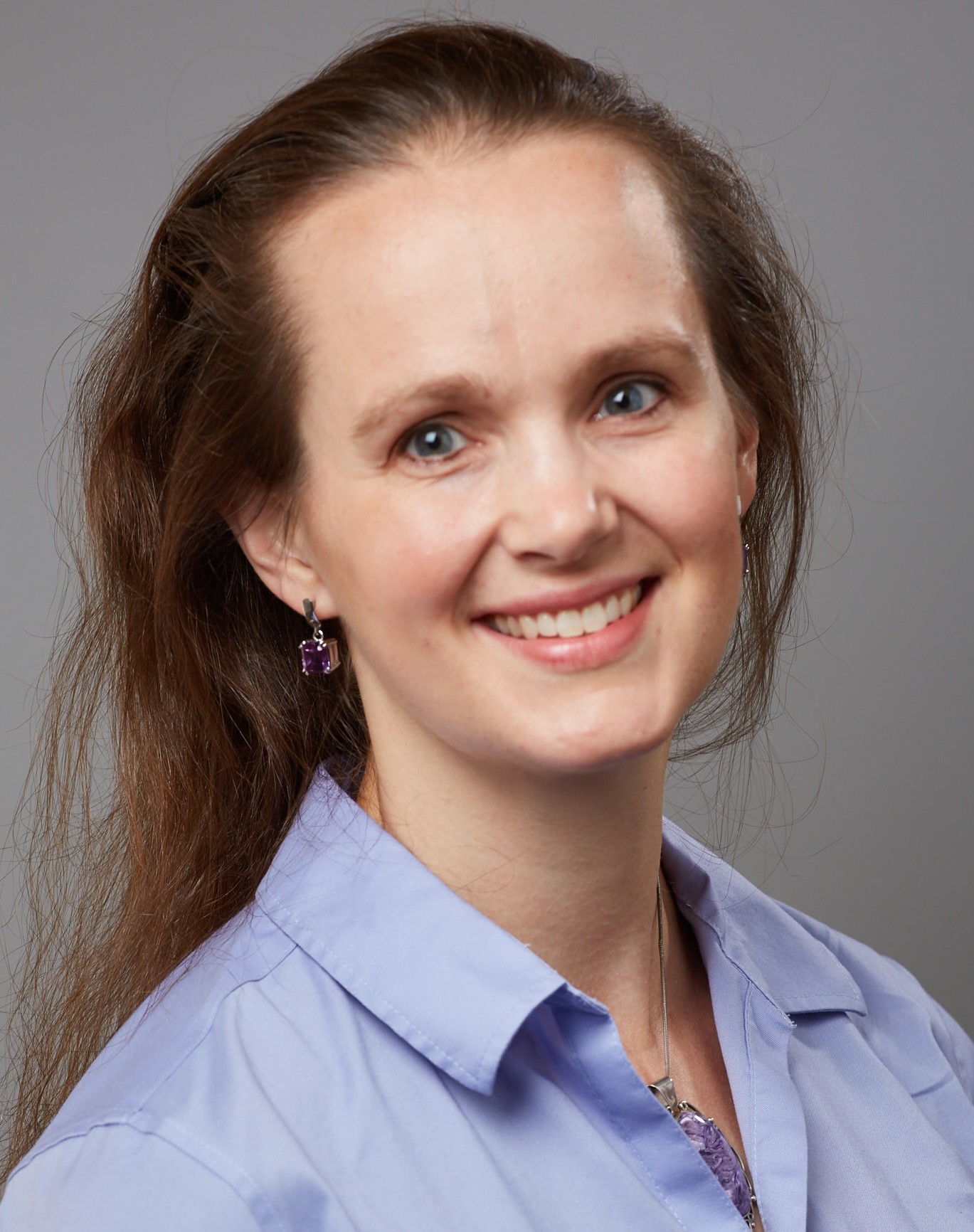 Dr. Erin Longbrake, MD, PhD, is an Assistant Professor of Neurology at Yale University. She is also Yale's Neuroimmunology fellowship director and Director of Clinical Research in Neuroimmunology. Dr. Longbrake is a clinical/translational researcher with an academic interest in the mechanisms underpinning the individual-level heterogeneity observed among patients with multiple sclerosis. Her current research is investigating relationships between the gut microbiome and the clinical/immunologic phenotype of MS as well as optimal management strategies for patients across the MS spectrum.
Dr. Erin Longbrake, MD, PhD, is an Assistant Professor of Neurology at Yale University. She is also Yale's Neuroimmunology fellowship director and Director of Clinical Research in Neuroimmunology. Dr. Longbrake is a clinical/translational researcher with an academic interest in the mechanisms underpinning the individual-level heterogeneity observed among patients with multiple sclerosis. Her current research is investigating relationships between the gut microbiome and the clinical/immunologic phenotype of MS as well as optimal management strategies for patients across the MS spectrum.
Darin Okuda, MD (Surveyed Expert, Group Leader)
Professor of Neurology
Director, Neuroinnovation Program
Director, Multiple Sclerosis & Neuroimmunology Imaging Program
UT Southwestern Medical Center
Dallas, Texas
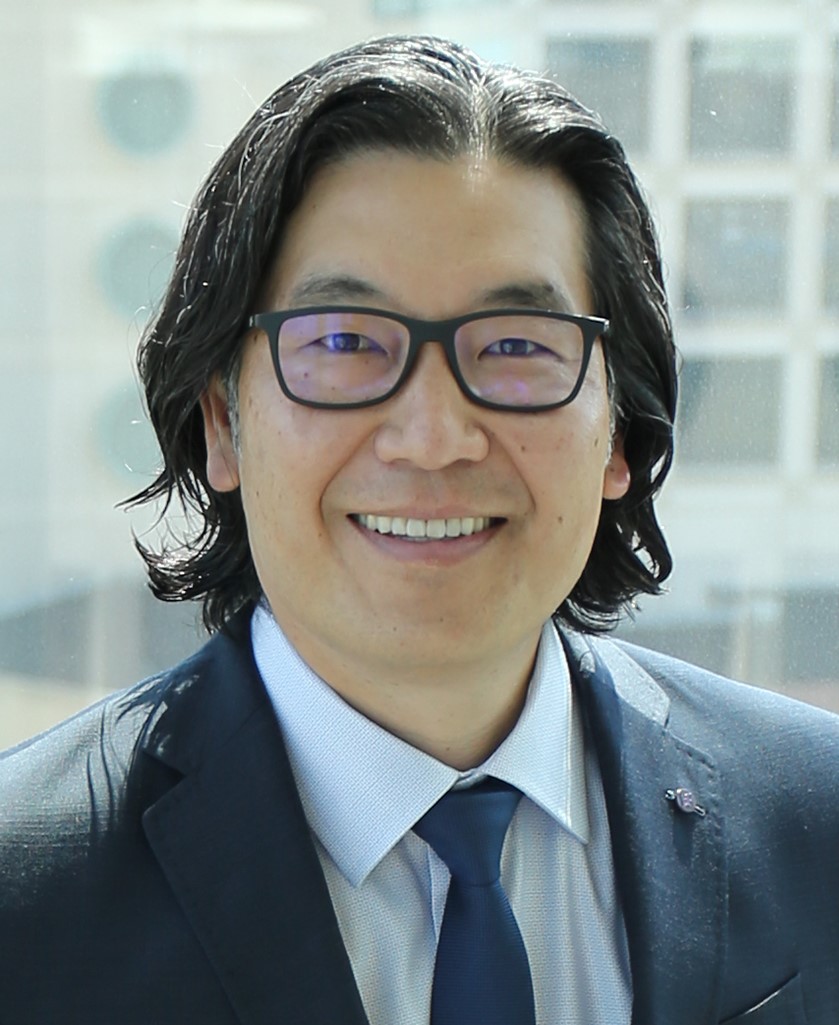 Dr. Okuda is a clinician-scientist and professor specializing in multiple sclerosis within the Department of Neurology at the University of Texas Southwestern Medical Center in Dallas, Texas. He currently serves as Director of the Neuroinnovation Program and Director of the Multiple Sclerosis and Neuroimmunology Imaging Program. Dr. Okuda’s work currently focuses design, creation and implementation of software, hardware, and manufacturing methods aimed at improving the diagnosis, management, and education of patients with multiple sclerosis and other neurological diseases. Dr. Okuda is also a Diplomate of The American Board of Psychiatry and Neurology, Inc., Fellow of the American Academy of Neurology, Fellow of the American Neurological Association, and member of the American Academy of Neurology Committees on Neuro-imaging and Ethics.
Dr. Okuda is a clinician-scientist and professor specializing in multiple sclerosis within the Department of Neurology at the University of Texas Southwestern Medical Center in Dallas, Texas. He currently serves as Director of the Neuroinnovation Program and Director of the Multiple Sclerosis and Neuroimmunology Imaging Program. Dr. Okuda’s work currently focuses design, creation and implementation of software, hardware, and manufacturing methods aimed at improving the diagnosis, management, and education of patients with multiple sclerosis and other neurological diseases. Dr. Okuda is also a Diplomate of The American Board of Psychiatry and Neurology, Inc., Fellow of the American Academy of Neurology, Fellow of the American Neurological Association, and member of the American Academy of Neurology Committees on Neuro-imaging and Ethics.
Carrie Hersh, DO, MSc, FAAN (Surveyed Expert, Group Leader)
Assistant Professor of Neurology
Director | Multiple Sclerosis Health and Wellness Program
Cleveland Clinic Mellen Program for Multiple Sclerosis
Lou Ruvo Center for Brain Health
Las Vegas, Nevada
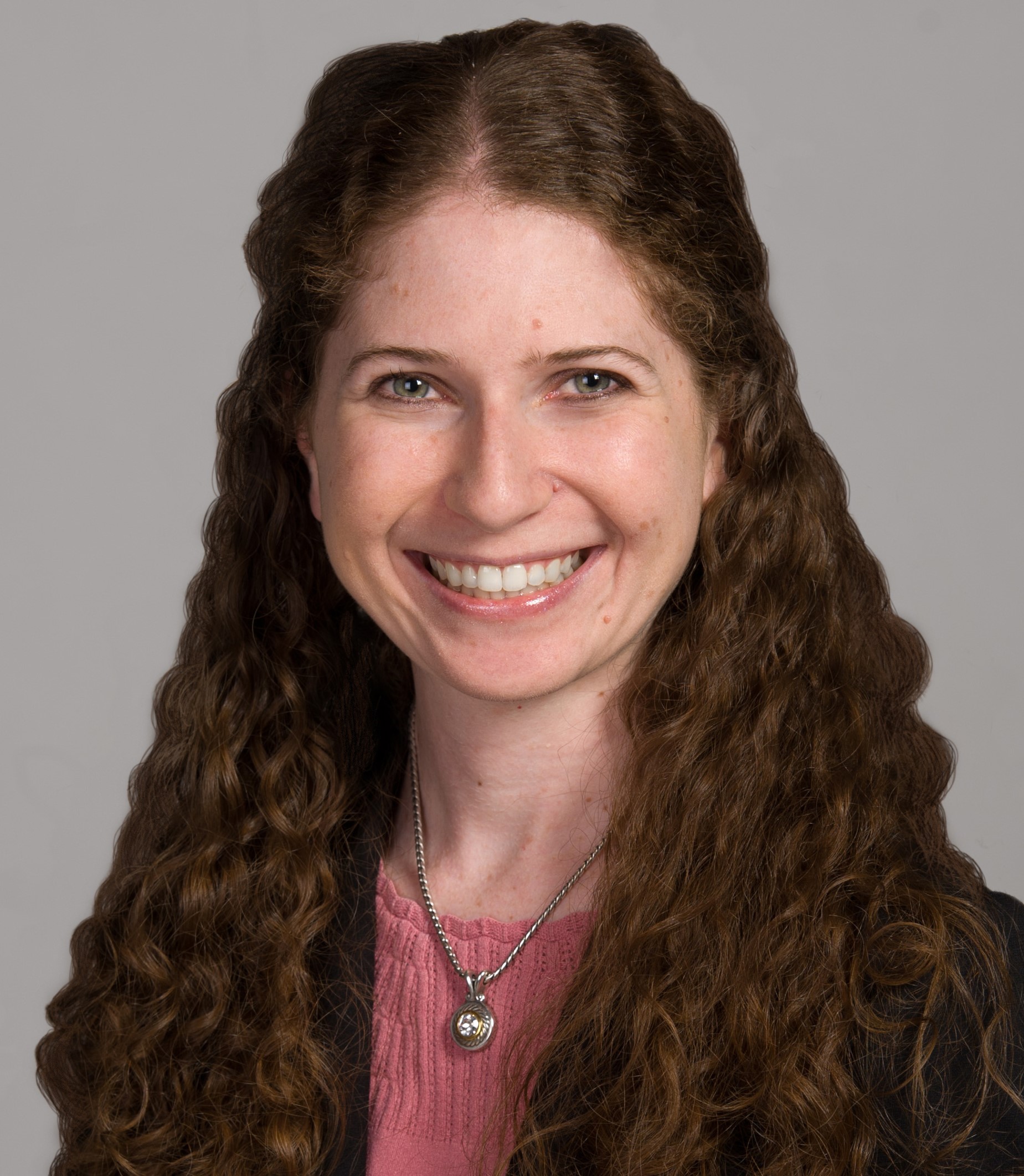 Carrie M. Hersh, DO, MSc, FAAN serves as Assistant Professor of Neurology at Cleveland Clinic Lerner College of Medicine and directs the Multiple Sclerosis (MS) Health and Wellness Program at the Lou Ruvo Center for Brain Health. She obtained her medical education at Nova Southeastern College of Osteopathic Medicine followed by neuroimmunology fellowship and neurology residency at the Cleveland Clinic Mellen Center. She also earned a master’s degree in clinical research through Case Western Reserve University.
Carrie M. Hersh, DO, MSc, FAAN serves as Assistant Professor of Neurology at Cleveland Clinic Lerner College of Medicine and directs the Multiple Sclerosis (MS) Health and Wellness Program at the Lou Ruvo Center for Brain Health. She obtained her medical education at Nova Southeastern College of Osteopathic Medicine followed by neuroimmunology fellowship and neurology residency at the Cleveland Clinic Mellen Center. She also earned a master’s degree in clinical research through Case Western Reserve University.
Dr. Hersh serves as the principal or co-investigator of multiple investigator-initiated studies and clinical trials investigating the effects of disease modifying therapies and wellness interventions on patient outcomes. Dr Hersh holds multiple board positions including Chair of the Healthcare Advisory Council for the MSAA, Chair of the NMSS Society’s regional Health Provider Council, Co-Chair of the CMSC Abstract Review Committee, and member of the CMSC Board of Governors and numerous steering committees.
Riley Bove, MD (Surveyed Expert, Group Leader)
Assistant Professor of Neurology
Director of Digital Innovation, UCSF MS and Neuroinflammation Center
UCSF Weill Institute for Neurosciences
San Francisco, California
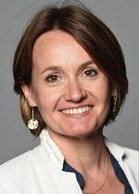 Dr. Bove completed her medical education at Harvard Medical School in 2007 followed by residency in the combined Massachusetts General Hospital - Brigham and Women’s Hospital Partners Neurology program. She remained in the Partners system for her clinical research fellowship at the Partners Multiple Sclerosis Center as well as her Masters Degree through Harvard Medical School’s Clinical Investigator Training Program. In 2015, Dr. Bove joined the UCSF Faculty. Throughout her career, she has received research support from the National Institutes of Health and the National MS Society, among others. Her research interests lie in seeking new strategies and targets to promote neurological recovery, including through emerging technologies and hormonal modulation. In her clinic, she is dedicated to providing comprehensive care for women (including during childbearing and menopause) and men with MS.
Dr. Bove completed her medical education at Harvard Medical School in 2007 followed by residency in the combined Massachusetts General Hospital - Brigham and Women’s Hospital Partners Neurology program. She remained in the Partners system for her clinical research fellowship at the Partners Multiple Sclerosis Center as well as her Masters Degree through Harvard Medical School’s Clinical Investigator Training Program. In 2015, Dr. Bove joined the UCSF Faculty. Throughout her career, she has received research support from the National Institutes of Health and the National MS Society, among others. Her research interests lie in seeking new strategies and targets to promote neurological recovery, including through emerging technologies and hormonal modulation. In her clinic, she is dedicated to providing comprehensive care for women (including during childbearing and menopause) and men with MS.
Accreditation Information
This activity is jointly provided by Postgraduate Institute for Medicine and Efficient LLC.

|
| Accreditation Statement In support of improving patient care, this activity has been planned and implemented by the Postgraduate Institute for Medicine (PIM) and Efficient LLC. Postgraduate Institute for Medicine is jointly accredited by the Accreditation Council for Continuing Medical Education (ACCME), the Accreditation Council for Pharmacy Education (ACPE), and the American Nurses Credentialing Center (ANCC), to provide continuing education for the healthcare team. Designation Statement PIM designates this enduring material for a maximum of 1.75 AMA PRA Category 1 Credit(s)™. Physicians should claim only the credit commensurate with the extent of their participation in the activity. |
Disclosures
Conflict of Interest Disclosure Policy
PIM requires instructors, planners, managers, and other individuals who are in a position to control the content of this activity to disclose any real or apparent conflict of interest (COI) they may have as related to the content of this activity. All identified COI are thoroughly vetted and resolved according to PIM policy. PIM is committed to providing its learners with high quality activities and related materials that promote improvements or quality in healthcare and not a specific proprietary business interest of a commercial interest.
Planners' and Managers' Disclosure
PIM planners and managers have nothing to disclose. Efficient LLC planners and managers have nothing to disclose.
Faculty Disclosures
Dr Naismith reports the following financial relationships:
- Consulting Fees (e.g. advisory boards): Biogen, Celgene, Genentech, Genzyme, Lundbeck, NervGen, Third Rock Ventures, Viela Bio.
Dr Subei has no relevant financial relationships to report.
Dr Longbrake reports the following financial relationships:
- Consulting Fees: Genentech
Dr Okuda reports the following financial relationships:
- Consulting Fees: Celgene, EMD Serono, Viela Bio
- Contracted Research: Biogen
Dr Hersh reports the following financial relatipnships:
- Consulting Fees: Novartis, Biogen, EMD-Serono, Genzyme, Genentech, Bristol-Myers Squibb
- Fees for Non-CME/CE Services: Novartis, Biogen, EMD-Serono, Genzyme, Genentech, Bristol-Myers Squibb
Dr Bove reports the following financial relationships:
- Consulting Fees: Alexion, Biogen, Sanofi Genzyme, Roche Genentech, Novartis
- Contracted Research: Biogen, Roche Genentech
Disclosure of Unlabeled Use
This educational activity may contain discussion of published and/or investigational uses of agents that are not indicated by the FDA. The planners of this activity do not recommend the use of any agent outside of the labeled indications. The opinions expressed in the educational activity are those of the faculty and do not necessarily represent the views of the planners. Please refer to the official prescribing information for each product for discussion of approved indications, contraindications, and warnings.
Disclaimer
Participants have an implied responsibility to use the newly acquired information to enhance patient outcomes and their own professional development. The information presented in this activity is not meant to serve as a guideline for patient management. Any procedures, medications, or other courses of diagnosis or treatment discussed or suggested in this activity should not be used by clinicians without evaluation of their patient's conditions and possible contraindications and/or dangers in use, review of any applicable manufacturer's product information, and comparison with recommendations of other authorities.
Commercial Support
This activity is supported by educational grants from Biogen, Bristol-Myers Squibb, EMD Serono, and Sanofi.
Media and System Requirements
Media
Internet
Computer System Requirements

